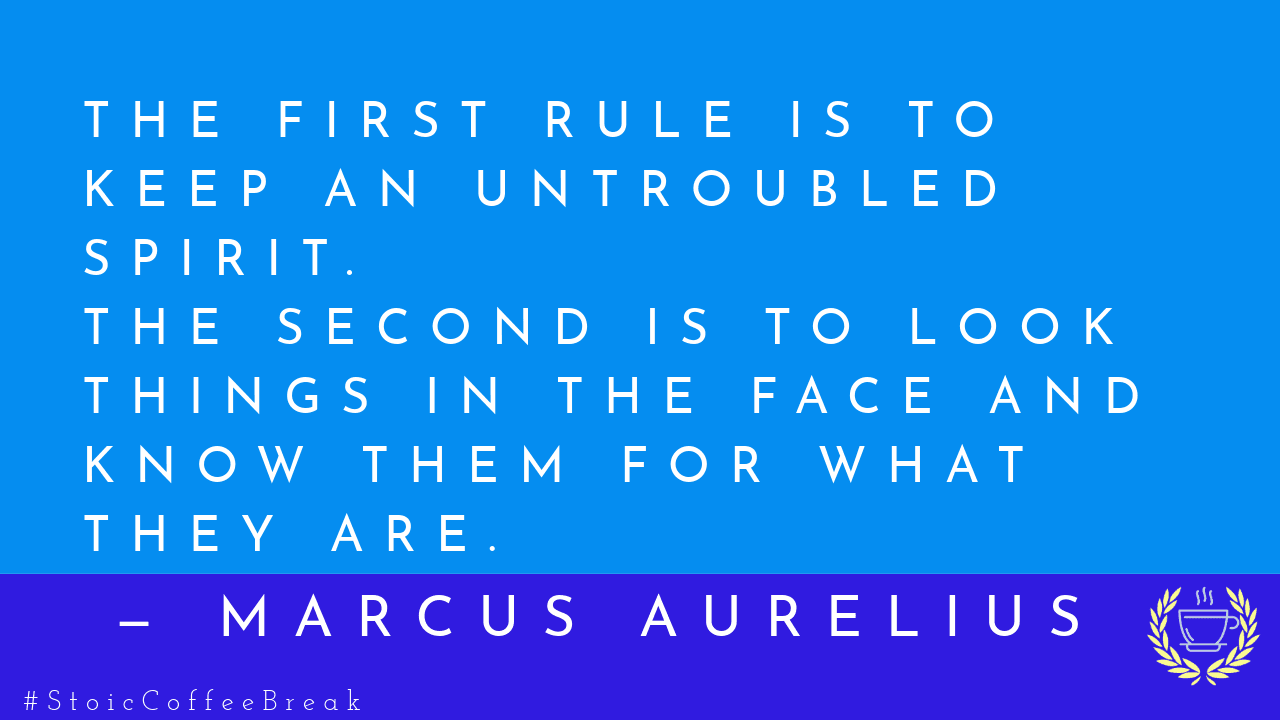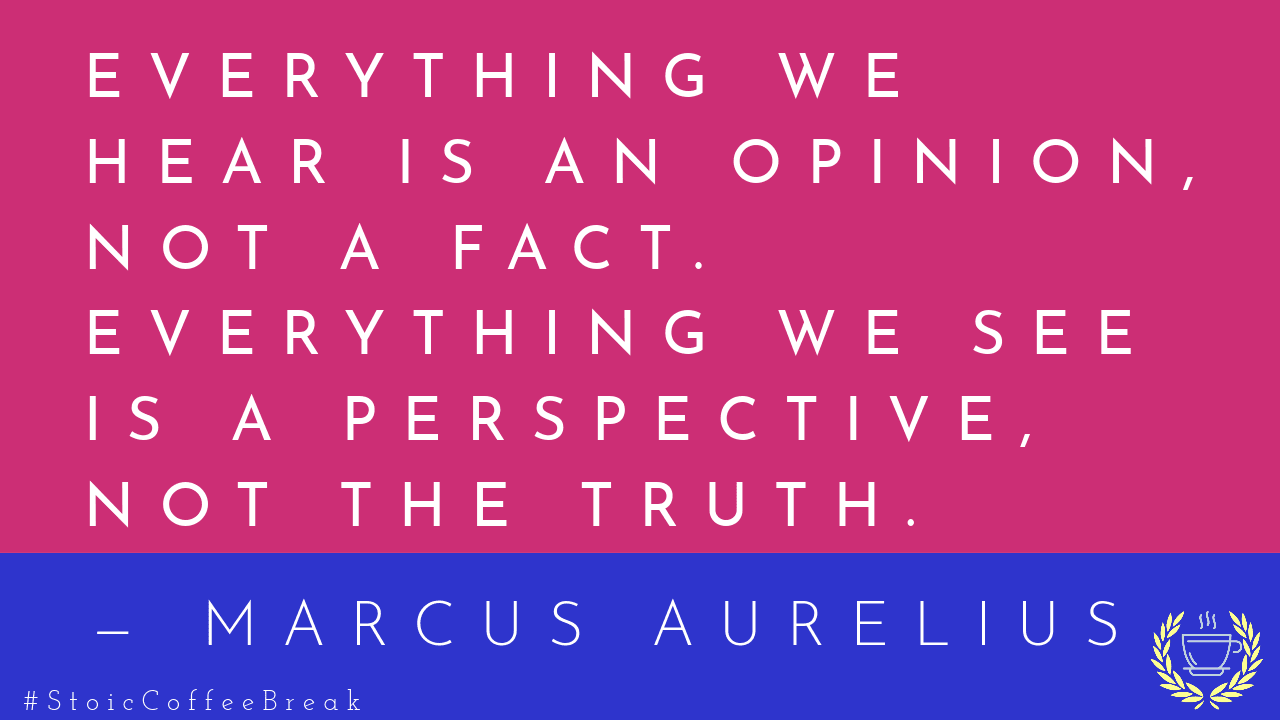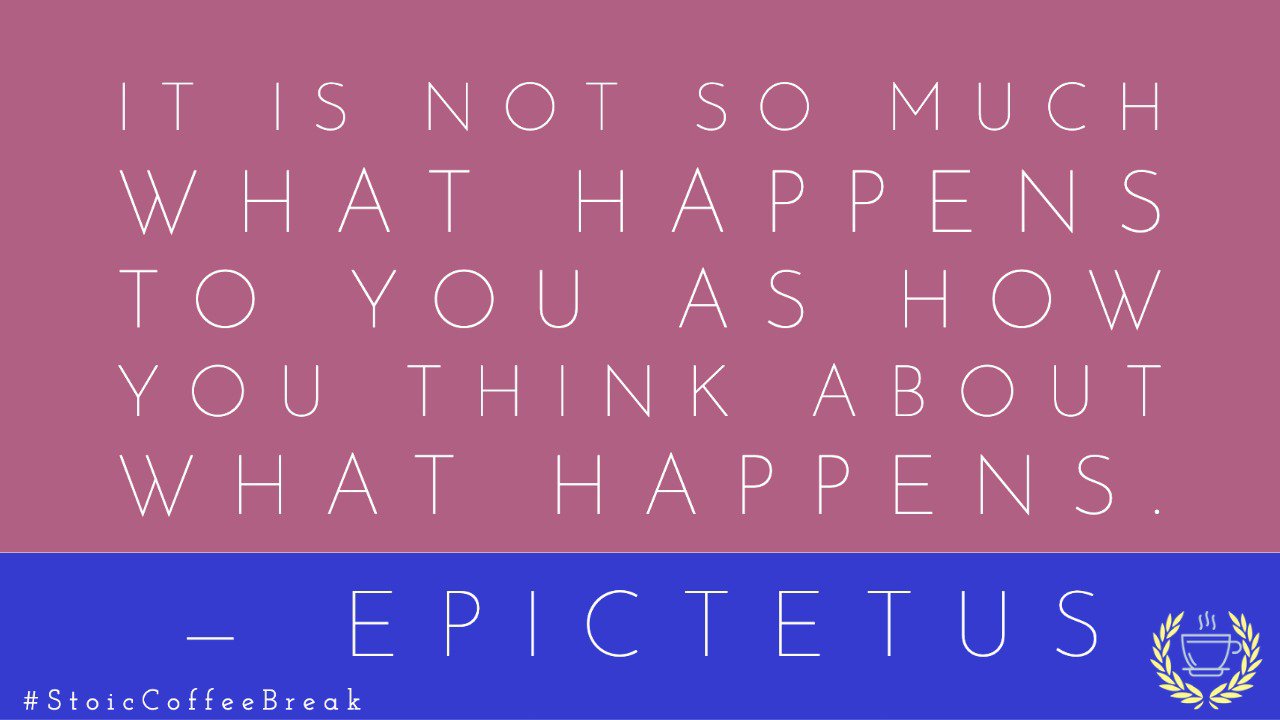
Do you struggle with anger? Why do you think you get angry? What can you do to manage your anger better? In this weeks episode I want to talk about how Stoicism can help you to get a grip on your anger, and lead a more peaceful life.
“If you are irritated by every rub, how will your mirror be polished?”
—Rumi
The other day I was out on my balcony and heard someone from an apartment above me shouting and swearing. I couldn’t hear much of what he was shouting or even what language it was in, except for the swear words in English. I couldn’t hear another voice, though I could tell that he was directing his anger at someone else, so I assume that he was talking on the phone.
As I listened to this go on for a few minutes and wondering what he was so angry at, it brought me back to the arguments that I used to have with my ex-partner over the last few years. I could feel myself feeling his anger, and I felt this wave of shame wash over me for the way that I often behaved in that relationship. I started thinking about if I’d be better able to handle myself now, or if I’d fall back into that same type of behavior if I got into another relationship.
And to be honest, I’m not 100% sure.
So I started thinking about why I was so often angry with my last partner, because even though I have thought about it from time to time, it’s something that I want to get a handle on. I want to make sure that the reason I don’t get angry like that isn’t just because I’m not in a relationship at the moment. I want to understand why I was angry and why, even with my deep understanding of Stoicism as well as understanding the long term consequences of not controlling my anger, I still didn’t seem to have a handle on my temper when it came to her.
So, as with many of my podcast episodes, I decided to sit down and work through this by writing about it so I could rationally examine what the causes of that anger were, and what steps I can take to make sure that I’m living the way I want to live, and act in accordance with my values. Because with all reactive behaviors, until you can get to the root of it, by understanding the conscious and unconscious thoughts, perspectives, and beliefs, it’s really hard to change them.
Digging Deep
As I began to explore this, one of the key things that I realized was that in many ways I didn’t trust her. I didn’t trust that she would truly accept me for who I am. I would often tell her what I thought she wanted to hear rather than what I truly thought about something. I basically would lie to her because I was so afraid that she would hate me if she knew the real me. This of course made it harder for her to trust me because she didn’t know if I was telling the truth about something, or just saying what I thought would make her happy.
So, why would I do that? Why, given the Stoics emphasis on being truthful and facing reality head on, would I lie about things, especially small things that didn’t really matter all that much, which was something that she asked me several times? I think that some of it stems from trauma in my childhood. When my father was upset about something, or even sometimes when I was just worried that something might upset him, I would bend the truth a bit or even outright lie just to keep him happy. I was trained that lying was okay because it kept me safe from my dad’s anger and violence.
Another factor was growing up in a strong religious where conforming to the beliefs of the church were more important than saying what you really thought. There was a strong social pressure to fit in and behave in the way that was expected of you. You learned how to say and do all the correct things in order to be seen as a good member of the church.
Now, don’t get me wrong, there are lots of good reasons for societies to have rules of behavior. It keeps things orderly and safe when there is a strong culture of following rules that are part of our social contract. This is how we are able to live together in large groups and communities. However, when it comes to a persons relationship with god, of their personal beliefs, I think that’s where it starts to intrude on you own self concept. When you feel pressured to believe in things that don’t make sense to you or that you don’t feel are part of your own personal principles and perspectives, you lie to yourself and others to keep them happy and to think of you in certain way.
Anger is Fear in Action
So how does this all relate to anger and Stoicism? It’s been said that anger is just fear in action. Usually we get angry because we feel fear, and we’re trying trying to control the situation with that anger. Whether that’s trying to control another person, or getting upset that things don’t work out as we want them, at the core of it, we’re afraid.
In my case, I wanted my partner to love me, and I tried control her through subtle manipulation with the lies I would tell to try and convince her that I was someone worth loving. When that would fail, I would get angry and try to control her with anger because I believed that she didn’t love me. I desperately wanted her to love me and when she was upset with me, I was afraid that she didn’t love me, because that’s what I felt when my dad was angry at me—that I wasn’t loved.
Holding Onto Anger
Another aspect I want to talk about is why we hold onto anger. Holding on to anger is also something that many of us do, but why is holding onto anger such an appealing thing? Anger feels like power, and power feels good. But the thing is, anger is the illusion of power. When we are angry, we are not in control of ourselves. When we hold onto anger, we may inflict harm on others and feel like we are in control, but the person that we harm the most is ourselves. For example, whenever I’d get any with my ex-partner, I felt awful and ashamed afterwards. I felt like I’d let us both down, and pushed her even farther away.
Frederick Buechner in his book Wishful Thinking: A Theological ABC, paints a great image of what happens when we hold onto anger:
"Of the seven deadly sins, anger is possibly the most fun. To lick your wounds, to smack your lips over grievances long past, to roll over your tongue the prospect of bitter confrontations still to come, to savor to the last toothsome morsel both the pain you are given and the pain you are giving back—in many ways it is a feast fit for a king. The chief drawback is that what you are wolfing down is yourself. The skeleton at the feast is you."
When Marcus Aurelius wrote, “How much more grievous are the consequences of anger than the causes of it,” he didn’t just mean that we harm others, but more that we harm ourselves. Seneca clarifies this further, stating, “Anger, if not restrained, is frequently more hurtful to us than the injury that provokes it.” When we lose our cool, we become a lesser person. We show ourselves and others that we are not on control of ourselves, regardless of how much we rant and rave. We are also choosing to put ourselves in bad state of mind and disrupt our own inner peace.
How can we get better at managing our anger? What active steps can we take to not let ourselves let irritations, disappointments, or even betrayal, send us spiraling and behaving in a way that is destructive to ourselves and those around us? I think the biggest key is radical acceptance.
Acceptance of Externals
First: Acceptance of all the things in life you can’t control.
The Stoics teach about the Dichotomy of Control, which means that we truly understand what is under our power and what is not. Epictetus clearly explains the difference: ”Some things are up to us and some things are not. Our opinions are up to us, and our impulses, desires, aversions—in short, whatever is our own doing. Our bodies are not up to us, nor are our possessions, our reputations, or our public offices, or that which is not our own doing."
In short, what we control is our perspective, beliefs, desires, and actions. That’s it. Everything else is outside of our control. By accepting this fundamental truth, we can learn to focus on the few things in our control, and let go of everything else. We can’t control other people, our reputation, or even external circumstance and events. We can only control how we treat other people, our own behavior, and how we choose to respond to the things that happen to us. By accepting that most things are not in our control, we can look at things with a little more objectivity and rationality, and think about what choices we want to make that will be more likely to lead to better outcomes.
I think a good place to practice this is in accepting other people for exactly who they are. Before I moved to Amsterdam, I was dating a woman who I’m still close friends with. We spent a lot of time together, and never seemed to have much conflict. I asked her once why it was so easy to be around her and why things seemed to work so smoothly, given how my last relationship was often fraught with anger. She said, “Well, part of it is that we’re still getting to know each other, and that part of a relationship is often easier with new relationship energy. But, I think a bigger part is that I accept you for exactly who you are, with no expectation that you will ever change or be someone else. It’s not my job to change you, or expect you to. You will change, and if you change into someone that doesn’t work for me, then it’s my choice of what I want to do about it.”
I was floored. What she said resonated deep in my bones. I did feel incredibly accepted and appreciated for who I was, not some persona that I was putting on so that she would like me. Now this is not say that my previous partner didn’t accept me and love me. It was that I believed that she didn’t or couldn’t, which was not fair to her because I didn’t trust her to do so. It was a good lesson for me to work on accepting others for exactly who there are without trying to change them.
Acceptance of Yourself
This leads me on to my second point: Acceptance of yourself for exactly who you are.
Because anger is driven by fear, often we will react with anger because of some insecurity deep within ourselves. When others point out some flaw of ours, or someone says something disparaging about us, we often react with anger because deep down we’re afraid they might be right. This due to not really knowing and accepting of all parts of us, especially the things we don’t like about ourselves. When we feel the discomfort of who we project ourselves to be to others being in conflict with the darker parts of ourselves, we often feel afraid of what others might think of us, or even who we think we are.
For example, if we think we’re a very generous person and someone points out that something we’re doing is selfish, there’s an inner conflict. We might get defensive and even angry that someone would think that we’re being selfish. But if we can accept that sometimes we may act in ways that are selfish, when someone calls us out, we can objectively look at our actions and decide if we were acting selfish in this instance. If we were, then we accept that, and so our best to make amends. If we weren’t and we felt that we were acting in a way that aligns with our principles, then we can try to understand why the other person felt like we were acting selfish.
Marcus Aurelius said, “If anyone can refute me—show me I'm making a mistake or looking at things from the wrong perspective—I'll gladly change. It's the truth I'm after, and the truth never harmed anyone.” This means that if the other person was right, there’s no need to get angry about it because it’s the truth. If the other person was wrong, then there’s still no reason to get angry about it because you’re living up to your principles.
Anger in Danger
Now, I often have people ask me about getting angry in dangerous situations, and if that isn’t key to our survival. When something frightens us, we often get angry about it, which can feel like an instant visceral reaction. But the more we can keep our cool in dangerous situations, the more we can make rational choices. This is why soldiers train in challenging circumstances, so that they can keep their fear under control. Once they get angry, the chances of them taking a rash or dangerous action increases dramatically putting themselves and others at risk. The more you can rationally control your fear, the more control you have over yourself in any situation.
Conclusion
Before I go, let me leave with this thought from Seneca:
“People who know no self-restraint lead stormy and disordered lives, passing their time in a state of fear commensurate with the injuries they do to others, never able to relax. After every act they tremble, paralyzed, their consciences continually demanding an answer, not allowing them to get on with other things. To expect punishment is to suffer it; and to earn it is to expect it.”
Dealing with anger is something that all of us have to learn if we want to thrive in the world. By understanding that anger is driven by fear, we can start to look at the root causes of why we often act in ways that are truly counterproductive to the well being of ourselves and others. By learning to accept ourselves, and accept those things out of our control, we can make better choices that benefit not only ourselves, but more especially, those we love.
Visit the Stoic Coffee Break website for more episodes, transcripts, and merch.
Find out more about the Leadership Mastermind.
Find me on linkedIn, instagram, twitter, or threads.
Thanks again for listening!








